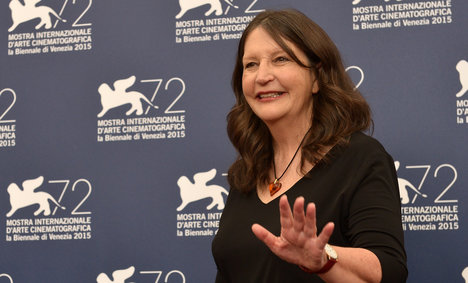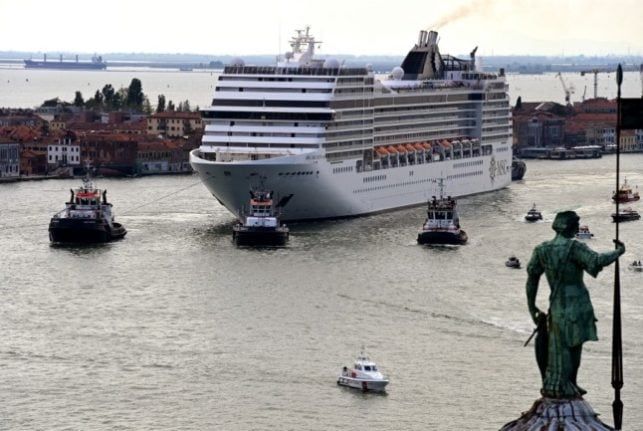In Venice with her latest drama “Looking for Grace,” Brooks is (along with Laurie Anderson), one of only two women among the 21 directors competing for the Golden Lion, the top prize at the world's oldest cinema festival.
And after more than three decades fighting – often in vain – to get her projects from script to screen, the 62-year-old does not see the industry's chronic gender imbalance changing.
“Why would it?,” she asks. “I haven't seen it change in the last 40 years.
“Australian women filmmakers are making some extraordinary films and we are still not seeing a lot of them.”
“Looking for Grace” is a wry portrait of a suburban Australian family which has its faultlines exposed when teenage daughter, Grace, runs away, along with an inexplicably large amount of cash her father has stashed in the safe.
Odessa Young has been tipped as a future star on the strength of what one critic described as her “pitch perfect” performance as Grace, while established Australian actors Radha Mitchell and Richard Roxburgh feature as the hapless parents who find their lives unravelling in more ways than one.
Set in Western Australia's wheat belt and constructed as a series of intertwined stories, it is Brooks' first feature since 2009's “Subdivision” and only her third since she made the multi-award winning “Japanese Story” in 2003.
The intervening years have been filled with films that never got made for lack of financial backing and Brooks says it is at that stage of the production process where women face the biggest obstacles to progress within the industry.
“All around the world I think the financiers are not reading women's work with a broad enough mind,” she said. “It is as simple as that.”
“The money decisions get made by men. What they are drawn to end up being those films. And we get to see more of the same.”
Life changing
Which helps to explain why Brooks was not expecting to be spending September mingling with Hollywood stars and European arthouse auteurs on a Venetian island and then flying on to Toronto, where the film will feature in that festival's newly introduced Platform section.
It was while she was having a late-night discussion about the merits of aubergine grey for a friend's planned paint job that she got an email telling her to immediately call the film's sales agent.
“He said, 'Sue your life is going to change. You are in Venice. In competition',” she recalled. “And, yeah, it has changed a bit. It is pretty amazing being here.”
“Australia is a long way away for making cultural films. So to land in the Mecca of Venice with such a history of cinema and such a respect for films … it hasn't changed as in my career has taken off but it has changed as in here is a moment of our work really being taken seriously.”
Mostly well received, “Looking for Grace” has prompted the full range of reactions from critics, from rapturous praise to damning dismissal.
The Huffington Post's reviewer said it “takes the audience on a series of journeys that still make the little hairs on my arms stand on end,” while Indiewire complained that “all the chopped-up chronology and teasing perspective shifts in the world cannot conceal the Aussie daytime soap nature of the storyline.”
Brooks though has been happy to bask in the glow of the positive reaction the movie has generated amongst its Venice audiences.
“It was pretty good (at the premiere) when the film finished and people stood up and clapped,” she said. “There was this moment where I thought 'ah well of course, you're here, that's what they do' and then there was this moment afterwards when I thought 'they really mean it'.”
The winner of the Golden Lion will be announced on Saturday. The Toronto Film Festival runs from Thursday until September 20.



 Please whitelist us to continue reading.
Please whitelist us to continue reading.
Member comments